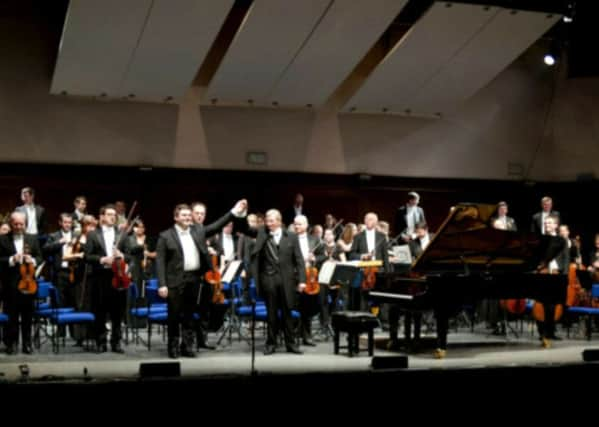Excitement and fire from RPO


It was almost too nice to be inside, though the music-making more than made up for this.
But we need to start with an honest appraisal of the problems facing any orchestra working in the De La Warr – the acoustic. There were times when the wind section all but vanished and the horns sounded as if they were coming from another room. This was all the more obvious in the opening Overture Leonore No.3, where the ‘off-stage’ trumpet, from the gallery, was far more piercing and effective than the brass actually on stage. None of this was the fault of either the musicians themselves nor of Brian Wright who guided his forces with tact and virile enthusiasm throughout.
Advertisement
Hide AdAdvertisement
Hide AdBrian Wright takes a very brisk approach to Beethoven, giving us a dramatically forceful reading of Leonore No.3 before the Emperor concerto with Alexander Panfilov, winner of the 2015 Hastings Piano Competition, as soloist. The Yamaha, though not a full concert grand, is an impressively loud instrument, though Panfilov tamed it when it came to more reflective passages. The second movement was particularly effective, with much subtlety of touch and phrasing, in marked contrast to the youthful enthusiasm he brought to the opening movement and the final Rondo.
The surprise piece of programme planning was the inclusion, immediately after the interval, of another overture – Coriolan. The forceful and often anguished approach was effective, and allowed the more reflective second subject to be all the sweeter.
The symphony was the Fifth, which Brian Wright approaches with an excitement and fire which comes from very brisk tempi. Even his tempi are not as fast as those indicated by the composer, but can seem challenging in a world of conductors who dwell in the moment and ignore the narrative pulse of the work as a whole. Beethoven’s Fifth should challenge us, and this approach certainly did as we moved rapidly on to the brilliant climax.
By Dr Brian Hick - www.larkreviews.co.uk